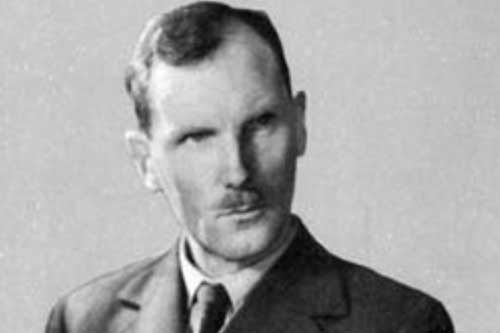Friday May 17th 2019

Group Captain James Stagg
A key player in the success of the D-Day landings is to be recognised in his home town for the first time with the unveiling of a commemorative plaque.
Raised in Dalkeith, Midlothian, Group Captain James Stagg led the team responsible for advising military planners on weather conditions in preparation for the Normandy landings in June 1944. As Chief Meteorologist to General Dwight D Eisenhower, it was Stagg’s expertise that persuaded the Allied Commander to postpone the advance by 24 hours until 6 June.
Eisenhower knew that the weather would be critical in determining whether or not the invasion went off as planned. The decision to postpone was not an easy one, as any delay made it increasingly difficult to keep the operation a secret. If the weather did not improve, D-Day would have had to be delayed for two weeks until the tides were again in the Allies’ favour. But over the course of 4 to 5 June, Stagg predicted a temporary break in the weather which allowed the operation to go ahead a day later. Eisenhower famously said: “I thank the Gods of War we went when we did.” Countless lives were saved and the success of the operation, and the eventual liberation of Europe, was assured.
James Stagg went on to receive the Legion of Merit from the United States of America, as well as being awarded an OBE and CB in his home country. Although the story of Stagg’s contribution to the war effort is well documented, his role has never been officially recognised in his home town – until now.
Thanks to the determined efforts of local history enthusiast Sharon Mackintosh, with the support of more than thirty individuals and organisations who have helped crowdfund the project, a memorial plaque is to be unveiled outside Dalkeith Library on Thursday 6 June – the 75th anniversary of D-Day.
“I am delighted that James’ son Peter will be there to unveil the plaque to his father, along with other family members,” said Sharon. “James Stagg’s professionalism, determination and expertise played a huge part in the success of the D-Day landings and his significant contribution richly deserves this lasting recognition in his home town.”
James Stagg was educated at the old Dalkeith High School and was awarded Dux of School in 1914-15 at the age of 15. After completing his schooling at Broughton Junior Student Centre in Edinburgh, he won a bursary to attend Edinburgh University, graduating with a first class honours degree in Mathematics and Natural Philosophy (Physics) in July 1920. He became a science master at George Heriot’s School, Edinburgh, later taking up posts as an assistant in the Meteorological Office and as Superintendent of the Kew Gardens Observatory.
In November 1943, he was commissioned as a Group Captain in the RAF and appointed Chief Meteorologist to the WWII Operation Overlord Planning Team. After the war, Stagg went on to become president of the Royal Meteorological Society and served for a time as director of services at the Meteorological Office.
His wartime service formed the basis for his book, “Forecast for Overlord,” which was published in 1972. James Stagg was also portrayed by the actor Patrick Barr in the 1962 film The Longest Day; by David Haig in his 2014 play Pressure, and by Steven Cree in 2017’s Churchill.
A second, smaller memorial plaque will also mark the site of James Stagg’s childhood home in Dalkeith High Street (formerly No. 153, now No. 169).
The plaque unveiling will take place outside Dalkeith Library and Arts Centre on Thursday 6 June 2019 at 12.30pm.
Tweet Share on Facebook